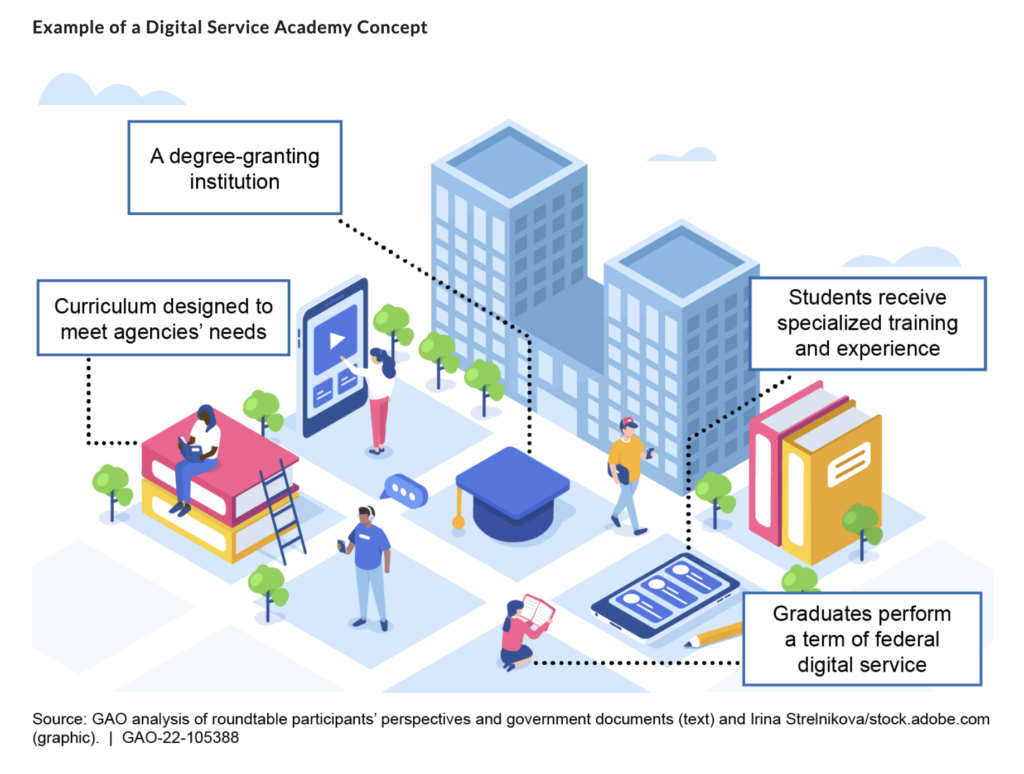GAO Reports Considerations for a Federal Digital Service Academy
Justin Hendrix / Nov 19, 2021Noting that the "federal government faces a severe shortage of digital expertise in fields such as artificial intelligence and cybersecurity," the U.S Government Accountability Office (GAO), the nonpartisan agency that provides information to Congress, has produced a report on considerations for a possible "Digital Service Academy" for Senator Kirsten Gillibrand, D-NY in her role as the chair of the Senate Armed Services Committee's Subcommittee on Personnel. Such an academy would "provide a dedicated talent pool to help meet the federal government’s needs for digital expertise."
The report summarizes ideas that "selected technology leaders shared on 1) federal workforce needs for digital services staff, 2) key characteristics of a digital service academy, and 3) considerations to help ensure agencies can absorb graduates of a digital service academy." Participants in the roundtable convened by GAO included representatives of a variety of federal agencies as well as academia and the nonprofit sector.
The idea for a Digital Service Academy was proposed earlier- alongside a "civilian National Reserve" of technologists- by the National Security Commission on Artificial Intelligence (NSCAI) final report. "We should establish a new Digital Service Academy and civilian National Reserve to grow tech talent with the same seriousness of purpose that we grow military officers. The digital age demands a digital corps," read the NSCAI report. That commission included representatives from government, but also from the tech sector.

Noting that the federal government's challenges in hiring for digital skillsets is acute-- "one participant noted that their agency has over 2,000 open positions requiring digital skill sets"-- the report suggests more such talent is necessary to update legacy systems, apply advanced technologies, address cybersecurity, and reimagine the delivery of government services. If the challenge is to transform the government, contractors are not a sufficient solution, the report concludes-- nor are the growing number of fellowships and internships across the government, which typically result in short-term assignments.
Enter a digital service academy that "could target graduate-level education," producing a pipeline of skilled professionals for federal agencies and creating career advancement opportunities for existing employees. Important, however, is that the government also address compensation concerns- "current salaries and compensation for federal digital services staff are not competitive with industry."
Authors
